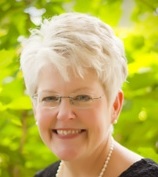Correction: This story was edited after posting to correct an error in the 13th paragraph.
By Bob Allen
An Alabama Baptist pastor says she is reconsidering her previous policy of not performing marriage-like commitment services for same-sex couples.
Sarah Shelton, pastor of Baptist Church of the Covenant in Birmingham, Ala., since 2002, said in her Sunday morning sermon Aug. 25 that until now when asked to officiate at same-sex unions she would refer gay and lesbian couples to one of the 30-plus other ordained clergy in the church.
Over time, however, she said she is becoming “more and more grieved not to be allowed to stand with the people to whom I am called to serve.”
 Shelton said she feels like a hypocrite when LGBT individuals open up to her in the privacy of her office. “When they do, I reach to place a blessing on their forehead as I say, ‘We would love for you become a member of Baptist Church of the Covenant.’”
Shelton said she feels like a hypocrite when LGBT individuals open up to her in the privacy of her office. “When they do, I reach to place a blessing on their forehead as I say, ‘We would love for you become a member of Baptist Church of the Covenant.’”
“I welcome them into church membership,” she said. “I baptize them in the waters. I serve them communion. I dedicate their babies. I appoint and ordain them to positions of leadership. I receive their tithes and offerings. I offer prayers beside their bed and words of remembrance at their funerals.”
“But what I have not done — what we have not done — is to honor their vows of covenantal relationship by permitting commitment services in the very place that they call their church home,” she said.
Long known as a progressive congregation, Baptist Church of the Covenant was organized Dec. 20, 1970, by about 300 charter members who had that July walked out in “moral protest” after First Baptist Church of Birmingham refused to accept two African-Americans, reached through the congregation’s neighborhood ministry, as church members.
Baptist Church of the Covenant also was an early advocate of women in ministry, choosing Shelton, a pastor’s daughter and the first woman to win the Clyde T. Francisco Preaching Award at Southern Baptist Theological Seminary, from 26 potential candidates and four finalists for the senior pastor position by a vote of 131-2 on Aug. 11, 2002.
Shelton reminded church members of that legacy in her Sunday sermon.
“Regardless of what the outside world does or says, let us remember that this congregation was founded on the principal that there would not be second-class citizens,” she said.
“So when we refuse this sacred space to those who wish to receive a blessing on their committed relationship, are we not asking gays and lesbians to sit in the back of the bus as we introduce them to our good friend Rosa Parks who sits proudly in the front?
“Are we not saying to them what clergy said to Martin Luther King — that the timing is not right and that if they will just be patient, wait … , then we can set them free from the cultural restrictions and prejudices that bind them?”
Baptist Church of the Covenant’s affiliations include the Alliance of Baptists and Cooperative Baptist Fellowship. The Alliance supports full inclusion of church members regardless of sexual orientation. The Atlanta-based CBF does not hire openly gay staff or missionaries but leaves matters like ordination or same-sex marriage up to the local church.
Gay marriage is banned in Alabama’s constitution since passage of Amendment 774 by 81 percent of voters in June 2006 defining marriage as “inherently a unique relationship between a man and a woman.”
Last fall, the Alabama Baptist Convention adopted a resolution opposing any effort to legalize same-sex marriage or frame it as a civil-rights issue, and affirming that “pastors should preach the truth of God’s word on human sexuality, marriage, purity, and love with all boldness and without fear of reprisal.”
Previous story:
